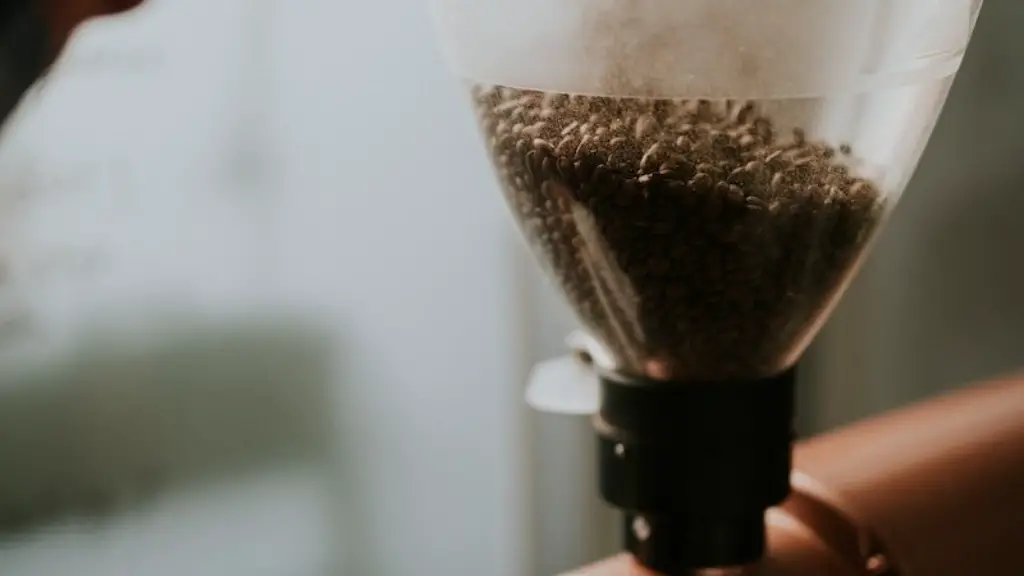Coffee has become the world’s most popular beverage, and its effects on the human body have been studied for centuries. Known to be a stimulant, coffee has been linked to improving physical performance and boosting alertness, but can drinking coffee too much have negative effects? In this article, we’ll explore the potential pros and cons of drinking coffee regularly, so you can make an informed decision about your coffee consumption.
Drinking coffee can have certain effects on the body, such as increased alertness and concentration, improved physical performance, and a reduced risk of depression and diabetes. Caffeine, the main active ingredient in coffee, is known to stimulate the central nervous system and keep us awake, as well as act as a natural diuretic by increasing urine production. Other beneficial compounds found in coffee include kahweol and cafestol, compounds that can help protect against chronic diseases such as diabetes, cancer, and heart disease.
Despite the potential health benefits of drinking coffee, there are some potential risks associated with over-consumption. Caffeine is a stimulant and can cause anxiety, insomnia, and restlessness. It can also cause heart palpitations, increased blood pressure, and increased urination, all of which can be dangerous if left unchecked. Additionally, drinking too much coffee can create dependency, which can lead to withdrawal symptoms in those that decide to cut back on their caffeine intake.
Overall, it appears that consuming coffee in moderation can have certain health benefits, and potentially even act as a preventative factor against certain diseases. Moderation is key when it comes to drinking coffee and it’s important to be aware of the potential risks associated with over-consumption.
Decaf Coffee
The majority of coffee consumed daily contains caffeine, but many people are now seeking out decaf coffee as an alternative to their regular cup. Decaffeinated coffee is made by removing the caffeine from the beans, although some of the other compounds found in caffeinated coffee may still remain, such as kahweol and cafestol.
Decaffeinated coffee has the potential to offer some of the same health benefits as caffeinated coffee, although research on this is ongoing. Some studies have also suggested that decaffeinated coffee may help reduce inflammation and improve blood sugar control.
Decaffeinated coffee, however, may not be suitable for everyone, as it may still contain traces of caffeine. Those with sensitivity to caffeine may still experience side effects when drinking decaf coffee and it’s important to monitor your reaction to any type of coffee.
When considering decaf coffee, it’s important to look for coffee that has been decaffeinated with the ‘Swiss Water’ method. This method is considered to be the most natural and least-damaging way to decaffeinate coffee beans.
Coffee Alternatives
In addition to decaf coffee, there are many other options available to those seeking an alternative to traditional caffeinated coffee. Herbal teas, such as chamomile or peppermint, are naturally caffeine-free and can provide many of the same benefits, such as improved sleep and increased relaxation.
In addition, many NON-caffeinated drinks, such as roasted chicory or dandelion tea, have been long associated with improved digestion, liver health, and immunity. And certain forms of green tea, such as matcha, contain lower levels of caffeine, as well as natural antioxidants that can help fight inflammation and boost memory and concentration.
For those looking for a coffee-like drink without the caffeine, there are now many varieties of coffee substitutes available, made out of grains like barley, rye, or chicory. These substitutes usually contain a combination of grains and herbs and have a mild, coffee-like flavor.
It’s also possible to make your own ‘coffee’ using spices such as cardamom and nutmeg, mixed with warm water. This mixture can help soothe digestion, reduce inflammation, and even improve focus and concentration.
Coffee Intake Recommendation
When it comes to drinking coffee, moderation is key. The recommended daily intake of caffeine for adults is 400 mg, which is about 4 cups of coffee. However, this may vary widely depending on an individual’s sensitivity to caffeine.
Those with a sensitivity to caffeine may need to limit their caffeine intake to half of the recommended amount or less. It’s also important to note that caffeine stays in the body for several hours, so those who are sensitive to caffeine should avoid drinking coffee at night to ensure they get a good night’s sleep.
It’s also important to be aware that certain foods and drinks can increase caffeine absorption, such as chocolate, energy drinks, and certain types of medication. As always, it’s best to consult a professional if you are concerned about your caffeine intake.
Coffee Accessibility
Those who rely on coffee every day may find that access to coffee is an issue in certain parts of the world. Coffee is much more accessible in the developed world, where coffeehouses are abundant and coffee is widely available for purchase.
In other parts of the world, however, access to coffee is more limited and the high cost of coffee can be prohibitive. Additionally, many developing countries lack the infrastructure to cope with the large-scale production and distribution of coffee, which can create further difficulties in accessing this popular beverage.
Fortunately, efforts are being made to improve coffee access and sustainability in many of these countries. Many coffee companies are working to create direct trade relationships with coffee farmers, allowing them to pay fair wages and provide better working conditions.
There are also numerous initiatives aimed at helping coffee farmers increase the sustainability of their coffee crops, as well as helping communities improve their access to clean water and sanitation.
Environmental Impact of Coffee
The environmental impact of coffee is another important factor to consider when deciding whether or not to drink coffee. Coffee production has been linked to deforestation in certain parts of the world and has been blamed for exacerbating climate change.
The coffee industry is also responsible for consuming a large amount of water, which can put strain on already scarce resources in certain areas. Additionally, there can be waste associated with the production of coffee, as well as its packaging and distribution.
Fortunately, there are a number of initiatives aimed at reducing the environmental impact of coffee production and consumption. Sustainable agriculture is becoming increasingly popular, and many coffee companies are taking steps to improve the sustainability of their coffee production processes.
There are also initiatives aimed at reducing the environmental impact of consumer behavior. For example, some coffee companies are introducing reusable cups and containers to reduce single-use plastic waste.
The Bottom Line
Overall, the decision to drink coffee is a personal one, and it’s important to take into consideration the potential risks and benefits. Moderation is key when it comes to drinking coffee, and it’s important to be mindful of the potential health risks associated with over-consumption. Additionally, considerations should be made for the environmental and social impacts of coffee production and consumption.





